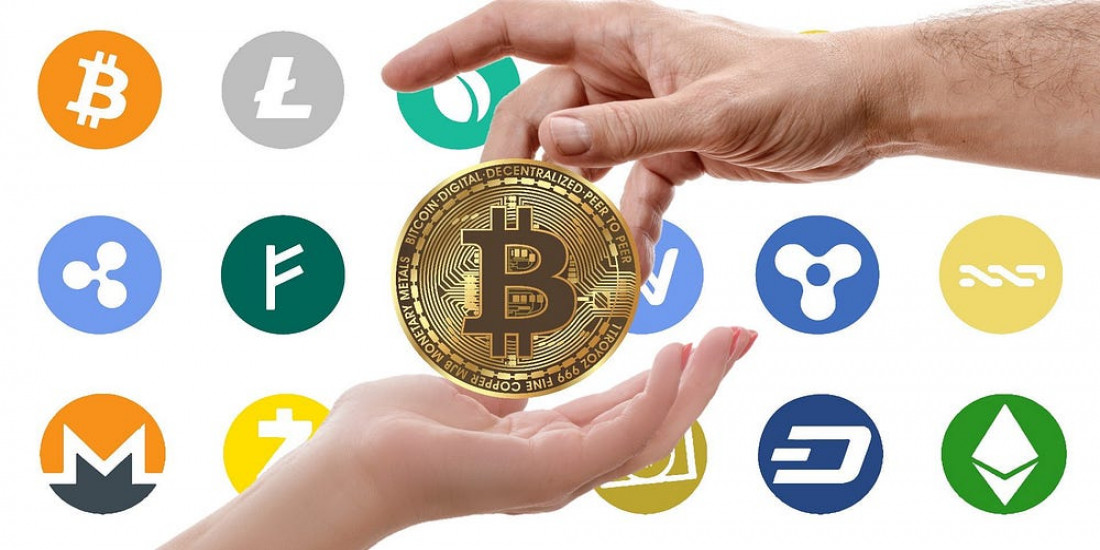The Top 12 Cryptocurrencies: A Market Capitalization Overview in 2023
Bitcoin dominates the headlines when discussing cryptocurrencies, but there is a vast array of alternative digital currencies known as “altcoins.” While Bitcoin was the first major cryptocurrency and remains the most commonly referenced, numerous other cryptocurrencies have gained popularity since its debut in 2009.
Here are the top cryptocurrencies based on their market capitalization, which represents the total value of coins in existence, as of June 28, 2023, according to CoinMarketCap.com:
Bitcoin (BTC)
Price: $30,366
Market cap: $590 billion
Bitcoin, the pioneer of the cryptocurrency era, was introduced by its enigmatic creator, Satoshi Nakamoto. Since its inception, Bitcoin has experienced a tumultuous journey, finally breaking into mainstream consciousness in 2017.
Ethereum (ETH)
Price: $1,858
Market cap: $223 billion
Ethereum is the second most recognized name in the crypto space and refers to both the cryptocurrency platform and its currency, Ether. Ethereum’s popularity stems from its ability to execute various functions through smart contracts.
Tether (USDT)
Price: $1.00
Market cap: $83 billion
Tether is a stablecoin anchored to the value of the U.S. Dollar. It serves as a medium for traders transitioning between cryptocurrencies, although concerns exist regarding its lack of secure dollar reserves.
BNB (BNB)
Price: $234.42
Market cap: $37 billion
BNB is the cryptocurrency issued by Binance, one of the largest crypto exchanges globally. Originally created for discounted trades, Binance Coin now facilitates payments and allows the purchase of goods and services.
USD Coin (USDC)
Price: $1.00
Market cap: $28 billion
Similar to Tether, USD Coin is a stablecoin pegged to the U.S. Dollar. Its founders claim that the currency is backed by fully reserved assets held in regulated U.S. institutions.
XRP (XRP)
Price: $0.4738
Market cap: $25 billion
Formerly known as Ripple, XRP provides a means of payment in various real-world currencies. It focuses on facilitating cross-border transactions through a trust-less payment mechanism.
Cardano (ADA)
Price: $0.2745
Market cap: $10 billion
Cardano is both a cryptocurrency platform and the name of its currency, ada. Created by one of Ethereum’s co-founders, Cardano employs smart contracts and emphasizes identity management.
Dogecoin (DOGE)
Price: $0.06434
Market cap: $9 billion
Initially conceived as a joke, Dogecoin gained popularity following Bitcoin’s surge. It derives its name from an internet meme featuring a Shiba Inu dog and has unlimited coin issuance. Dogecoin is used for payments and transfers.
Tron (TRX)
Price: $0.07443
Market cap: $7 billion
Launched in 2017, Tron aims to decentralize the internet using blockchain technology and decentralized applications. It boasts the largest circulating supply of stablecoins worldwide.
Solana (SOL)
Price: $16.34
Market cap: $7 billion
Introduced in 2020, Solana distinguishes itself with fast transaction speeds and a robust “web-scale” platform. The cryptocurrency, SOL, has a capped issuance of 480 million coins.
Litecoin (LTC)
Price: $85.56
Market cap: $6 billion
Launched in 2011, Litecoin is one of the earliest cryptocurrencies. It is widely available for trading and shares Bitcoin’s source code, with a fixed maximum supply of 84 million coins.
Polkadot (DOT)
Price: $4.99
Market cap: $6 billion
Polkadot, introduced in 2020, connects various blockchain technologies from different cryptocurrencies. Created by one of Ethereum’s co-founders, Polkadot is considered a potential rival to Ethereum.
MyCoinChange provides a wide range of cryptocurrencies, including Bitcoin, Ethereum, Tether, BNB, USD Coin, XRP, Cardano, Dogecoin, Tron, Solana, Litecoin, and Polkadot. With MyCoinChange, users can easily access and trade these coins, taking advantage of the diverse options available in the cryptocurrency market.
In conclusion, the cryptocurrency market is highly volatile, and investing in digital assets should be approached with caution. The involvement of both the U.S. government and sophisticated investors adds complexity, making it challenging for newcomers to navigate this speculative space. It’s crucial to invest only what one can afford to lose due to the inherent risks associated with cryptocurrencies.
Useful links
- Monero (XMR) swaps →
- Bitcoin (BTC) exchange →
- Trade like a Pro →
- Sign up for an account →
- Read another blog →







